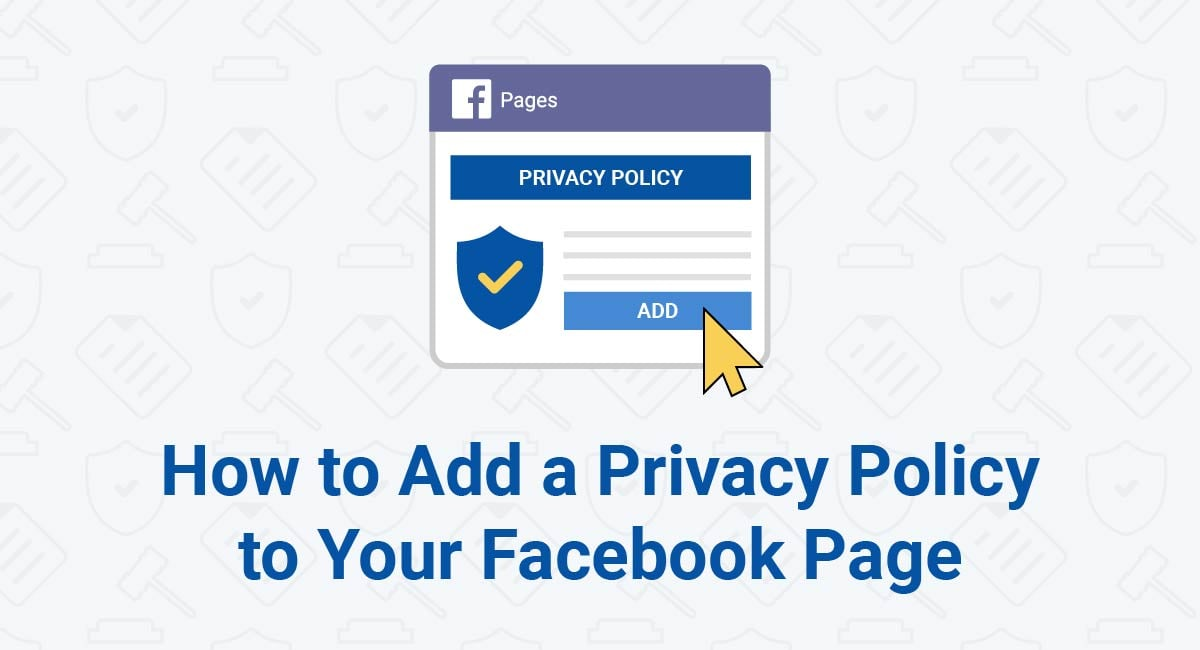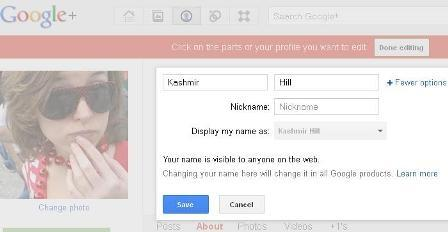Facebook privacy policies have become a crucial topic of conversation as users grapple with the recent changes to these rules. With mounting data privacy concerns plaguing social networks, users are increasingly questioning how their information is safeguarded and shared. The latest overhaul of Facebook’s privacy settings has left many individuals feeling unsure about which options to choose, as the platform prompts them to set their profiles to a wide audience by default. As a result, discussions around social media privacy are more relevant than ever, with users needing to be aware of their choices to protect their personal information. It’s essential to navigate these privacy policy changes thoughtfully, ensuring that one’s preferences align with a desire for greater security in the digital age.
The ongoing evolution of privacy regulations on platforms like Facebook highlights the pressing issue of user data and the management of personal information online. As social media giants rethink their policies, many users are faced with tough decisions regarding the transparency of their digital presence. Confronted with potential compromises on their data, individuals must be vigilant in evaluating the implications for their online activities. In this era of advanced interconnectivity, understanding how privacy settings and policies affect daily interactions has never been more important. The dialogue surrounding online privacy is not merely about compliance but also about empowering users to take control of their personal information amid growing scrutiny from authorities.
Understanding Facebook Privacy Policies
Facebook’s privacy policy changes have raised significant concerns among users and privacy advocates alike. The latest alteration to the platform’s approach to user data seems to prioritize broader visibility over personal privacy, prompting many users to reassess their own privacy settings. Such fundamental changes to privacy policies can lead to confusion among users regarding the extent to which their data is shared. What does it really mean to disable privacy settings for the benefit of ‘Everyone’? It signals a clear pivot in the platform’s strategy towards making user information more public, challenging the notion of personalized data privacy that many have come to expect from social networks.
As users, it is crucial to navigate these new policies with an informed perspective. The modifications to Facebook privacy settings are not just a matter of compliance; they require active engagement from users who must choose how much of their information they want to share. Additionally, the implications of these changes extend beyond individual users; they highlight the broader context of social media privacy as a key concern in our digital age. The push for transparency may have good intentions, but without careful consideration, we risk sacrificing our personal data and privacy for convenience.
The Impact of Privacy Policy Changes on Users
The recent changes to Facebook’s privacy policies have empowered users to reconsider their relationship with social media. With the shift in privacy dynamics, users are urged to take a proactive stance by reviewing their Facebook privacy settings and understanding what specific information they are comfortable sharing. The community’s engagement in polls and discussions around such pivotal issues reflects a growing awareness about data privacy concerns and highlights a collective demand for clearer and more stringent privacy policies on social networks.
These policy changes may also have legal ramifications, as scrutiny from regulatory bodies like the US Federal Trade Commission signals a growing concern about social media giants’ handling of user data. As Facebook faces potential investigations, it becomes evident that the implications of privacy policy changes go beyond individual user preferences, influencing broader regulatory and legislative dialogues. The upcoming scrutiny from Congress and potential hearings could catalyze more significant reforms in how these platforms manage user privacy, setting a benchmark for future updates in privacy policy across various social networks.
Your Voice in the Poll: Where Do You Stand?
As Facebook rolls out its new privacy policies, gathering user opinions through polls becomes increasingly important. Participating in these polls allows users to express their stances on how social networks like Facebook handle data privacy. By voicing opinions, users contribute to the larger conversation about data privacy concerns and the expectations they have for Facebook privacy settings. This participatory approach empowers users to advocate for better protections and more transparent policies.
Moreover, voicing opinions on platforms such as Betanews not only amplifies individual concerns but also indicates a collective demand for change. It is essential to recognize that user feedback can influence policy decisions, making participation in such polls a vital tool for those concerned with social media privacy. Engaging in these conversations fosters a culture of accountability, encouraging platforms to prioritize user privacy and adapt policies that reflect user expectations.
Navigating Data Privacy Concerns on Social Media
Data privacy concerns have become a focal point for users navigating the complex terrain of social media. With platforms like Facebook frequently updating their privacy policies, users must remain vigilant in understanding how their data is utilized and shared. Engaging with privacy settings can help mitigate risks associated with unauthorized access to personal information. It is important for users to familiarize themselves with the tools available to them for managing data sharing, as these tools are essential for maintaining privacy in an increasingly interconnected online environment.
Addressing data privacy concerns also requires social media companies to adopt user-centric approaches when formulating policies. By fostering transparency and providing clear explanations of how data is handled, platforms can build trust with their users. This collaborative effort between users and companies is crucial for establishing a safer social media landscape where users feel secure sharing their information without fear of exploitation.
The Role of Legislative Oversight in Privacy Policies
Legislative oversight plays a crucial role in shaping the landscape of privacy policies on social media platforms. As users express their concerns regarding data sharing, it becomes imperative for lawmakers to step in and establish guidelines that govern how these platforms operate. The attention directed towards Facebook by the US Federal Trade Commission is indicative of a growing recognition of the need for regulation in this domain. Legislative bodies are tasked with ensuring that companies uphold a responsibility towards user privacy and data integrity.
The potential hearings involving Facebook executives not only serve as a platform for accountability but also signify an evolving dialogue around privacy practices in the tech industry. Such oversight is necessary to balance innovation with responsible data management, protecting user interests while allowing companies to thrive. As Congress gears up to address these issues, the outcomes of these discussions could lay the groundwork for more robust privacy laws that better safeguard user data across all social networks.
Educating Users on Facebook Privacy Settings
Educating users about the intricacies of Facebook privacy settings is essential in empowering them to make informed decisions regarding their data. With the recent policy changes, many users may find themselves at a crossroads, unsure of how to adapt their settings to align with their preferences. Comprehensive resources that explain privacy settings and data management options are critical for enhancing user understanding and confidence in their ability to safeguard their personal information.
Workshops, webinars, and informative articles can serve as valuable tools in this endeavor, breaking down complex privacy settings into digestible information. Smartphones and computers can sometimes feel overwhelming, and making privacy easy to understand could significantly increase user participation in controlling their own data. As users become more knowledgeable about privacy options available to them, they will be better equipped to exercise their rights and demand more from social networks regarding data privacy.
The Future of Social Media Privacy Policies
The future of social media privacy policies is under continuous scrutiny as user expectations evolve along with technology. With growing data privacy concerns, platforms like Facebook are challenged to adopt practices that enhance user trust rather than undermine it. The recent policy changes have highlighted the need for transparency and adaptability in privacy management, suggesting that social media companies should anticipate and respond effectively to user demands for protection.
Looking ahead, it is likely that social networks will need to incorporate more rigorous privacy protections into their frameworks. This may involve developing new tools that allow users to customize their privacy settings seamlessly, ensuring that they have control over their personal information. As conversations around privacy evolve, social media companies must embrace a proactive stance, ultimately aligning their policies with users’ expectations and legal requirements in a rapidly changing digital landscape.
Community Responses to Privacy Policy Changes
Community responses to Facebook’s privacy policy changes reflect a broad spectrum of opinions, ranging from outrage to resignation. Many users express frustration over feeling pressured to make decisions that could compromise their privacy for the sake of visibility. Such sentiments may create a rift between the platform and its users, highlighting how important it is for companies to listen and adapt to their communities’ feedback on privacy issues.
Feedback mechanisms, like polls and forums, serve to amplify these voices, fostering a sense of community engagement around privacy policies. By participating in these discussions, users contribute to shaping the conversation about social media privacy, emphasizing the need for more user-friendly and privacy-conscious approaches. Engaging with these community-driven efforts can lead to positive changes and encourage platforms to prioritize user experience and trust.
Advocacy for Stronger Privacy Protections
As awareness of privacy issues grows, advocacy for stronger privacy protections becomes imperative for users of social networks. Organizations dedicated to data privacy are rising in prominence, influencing how social media platforms operate concerning user data. By lobbying for more stringent regulations, these groups aim to create an environment where users are better protected from potential data breaches and unauthorized sharing of personal information.
Being part of advocacy efforts can empower users to make a difference by raising awareness about their rights and the importance of data privacy. The collective action of users and advocacy groups can steer companies towards adopting practices that prioritize user safety and privacy. The outcome is a more ethical approach to data management that not only safeguards user interests but also restores trust between social networks and their communities.
Frequently Asked Questions
What are Facebook’s privacy policies and how do they affect users?
Facebook’s privacy policies outline how user data is collected, used, and shared on the platform. These policies impact users by determining the extent of their data visibility and control through Facebook privacy settings, which allow users to manage who sees their posts and personal information.
How can I adjust my Facebook privacy settings?
To adjust your Facebook privacy settings, go to the Settings menu, select ‘Privacy,’ and customize options such as who can see your posts, friend requests, and profile information. Keeping your privacy settings updated is essential to protect against data privacy concerns on social media.
What do recent changes in Facebook’s privacy policy mean for users?
Recent changes to Facebook’s privacy policy have shifted default settings to ‘Everyone,’ increasing the visibility of user content unless manually changed. This has raised data privacy concerns among users regarding the sharing of personal information with the public.
Why are data privacy concerns critical in Facebook’s privacy policies?
Data privacy concerns are crucial in Facebook’s privacy policies because they directly affect how users’ personal information is handled. Users must be aware of these policies to safeguard their data on social networks and ensure their privacy preferences are adequately protected.
What actions can users take to protect their data in light of Facebook’s privacy policy changes?
Users can protect their data by reviewing and adjusting Facebook privacy settings regularly, limiting audience visibility on posts, and being cautious about the information shared publicly. Maintaining awareness of privacy policy changes is vital for data protection on social media.
How do Facebook’s privacy policies compare to those of other social networks?
Facebook’s privacy policies often reflect industry trends but can differ significantly from those of other social networks. Users should compare privacy practices across platforms to understand how each handles data privacy concerns and user control over their information.
What implications does Facebook’s revised privacy policy have for social media users?
The revised privacy policy has significant implications for social media users, including increased data exposure and a need for proactive management of privacy settings. Users must stay informed and vigilant to navigate potential risks associated with their online presence.
What steps is the government taking regarding Facebook’s privacy policies?
The government, particularly the US Federal Trade Commission, is scrutinizing Facebook’s privacy policies due to rising data privacy concerns. This scrutiny may lead to formal investigations and regulatory actions, prompting further discussions on user privacy rights on social networks.
| Key Point | Description |
|---|---|
| Change in Privacy Policy | Facebook updated its privacy policy leading to widespread concern among users. |
| User Decision | Users are faced with a choice about how to adjust privacy settings amidst the new ‘Everyone’ default. |
| Federal Scrutiny | A complaint has been filed against Facebook that may lead to federal investigation. |
| Congressional Action | Anticipation of Congressional hearings involving Facebook executives regarding privacy policies. |
| Public Opinion Poll | A live poll has been launched to gauge public opinion on Facebook’s new privacy approach. |
Summary
Facebook privacy policies have become a significant topic of discussion following their recent changes. The update has prompted confusion and concern among users, as many are now reevaluating their privacy settings to align with the new defaults. Furthermore, with increased scrutiny from federal agencies and the potential for Congressional hearings, the issue of user privacy on Facebook is more relevant than ever. As such, it is crucial for users to stay informed and engaged with these changes in order to safeguard their privacy.



